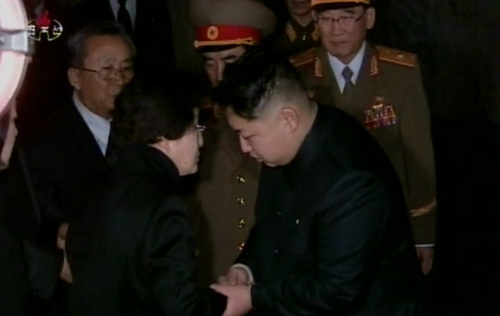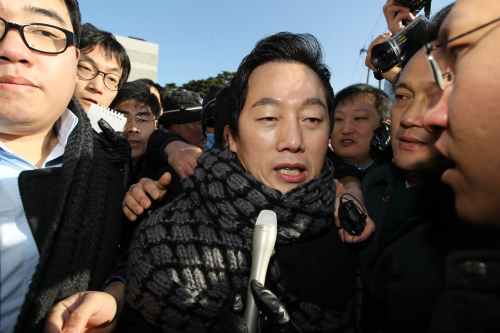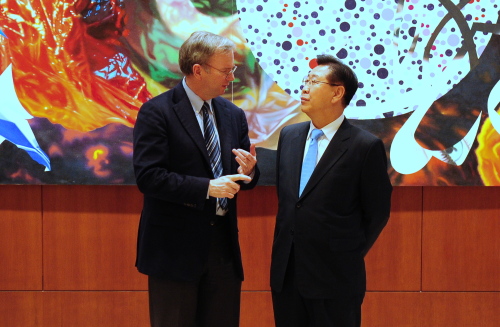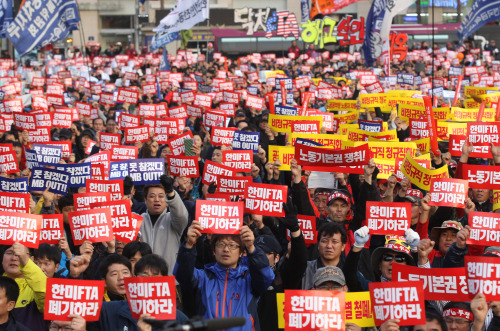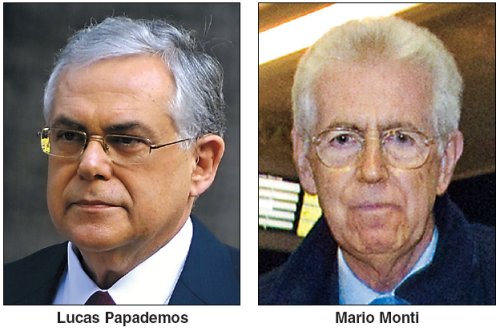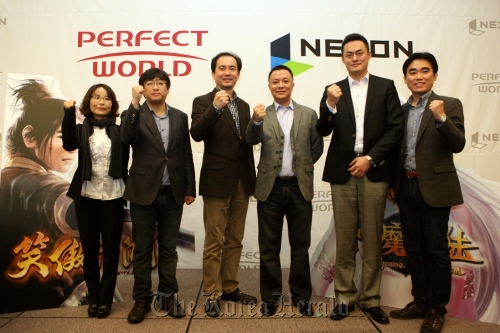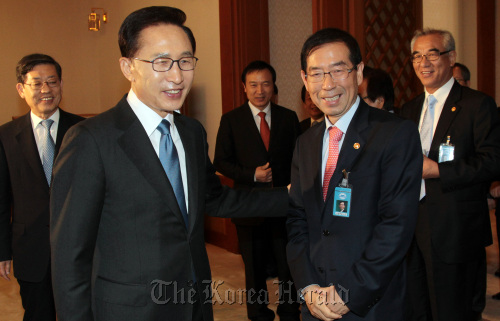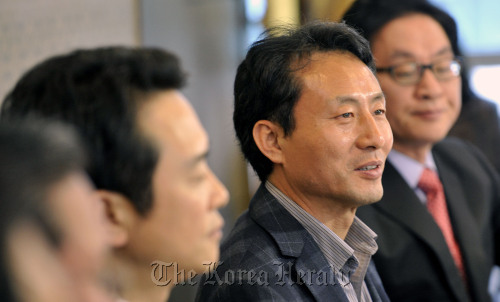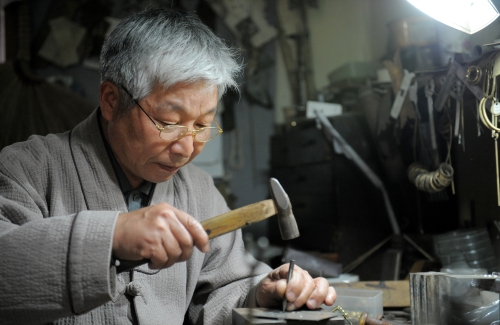Where, how to hail the Year of Dragon
Every year has witnessed a progressive growth in the scale and breadth of Seoul’s countdown parties.
Single and double star events gave way to multiple act showdowns, then, last year, two game-changers busted out the big guns.
Countdown Seoul 2011 transformed the massive Yeongdeungpo shopping complex, Times Square, into a multi-floor over 15-act music bonanza featuring former Daft Punk manager-and-Ed Banger Records’ head Pedro Winter a.k.a. Busy P, the late DJ Mehdi and South Korean boy band 2PM.
The Seoul Electronic Music Festival catered to hard-core revelers with 25 artists in two venues ― Sheraton Grande Walkerhill’s Walkerhill Theatre and Vista Hall ― for a seven-hour fiesta.
Both are slated to return this winter, with a strong round-up of high profile acts.
While Countdown Seoul is sticking to the same venue and date, the Seoul Electronic Music Festival has nudged its date to Jan. 14, leaving Walkerhill Theatre and Vista Hall open to takers.
Apparently the double venue was simply too good to pass up and has attracted a brand new party, the HIGH LIGHT FESTIVAL, whose acts include the Billboard chart-topping group, Far East Movement, and former K-pop boy band member-gone-solo Jay Park.
Meanwhile, neighboring WooBar is staying faithful to its long tradition of putting out a DJ-fronted countdown party.
Countdown Seoul 2012 at Times Square
Bigger is not always better, but it is when it comes to Countdown Seoul’s second installment.
Co-organizer LOCKSMITH by SHYOSHYO type’s planning team head Kim Soo-hyang said the upcoming party has expanded to an extra floor of the shopping complex.
Kim also promises to top last year’s balloon shower, only going so far as to say “an amazing countdown show is in the works.”
Amped-up nosh and drinks will include vodka cocktails, beer and coffee, and a special menu served up on the fifth floor at the Seoul New Rave stage.
When it comes to the 10-hour, 20-act bash itself, no doubt, Korean spoof heavy duo UV will be one of the most-anticipated acts of the night.
Thanks, in part, to the duo’s ability to seamlessly meld parody-driven humor with pseudo reality on cable TV while continuously churning out catchy, retro singles like their more recent “Itaewon Freedom” (ft. music mogul Park Jin-young), comedian Yoo Sae-yoon and artist-friend Muzie have skyrocketed to fame since their 2010 tongue-in-cheek, R&B debut “No Cool, I’m Sorry” ― a riot that came complete with a guffaw-inducing music video.
While UV is sure to bring the laughs, French DJ-producer Breakbot will have partygoers chilling to his addictive infusion of a ‘70s-style groove into songs and remixes like “Baby I’m Yours” and Metronomy’s “A Thing For Me.”
Joining Breakbot is fellow Ed Banger Records label artist and art director SO ME, French duo Housse de Racket and Japanese electronic act 80kidz. Two-man indie band Goonamguayeoridingstella will also be bringing their dreamy, guitar strumming, soft vocal-laden sound to the show.
Countdown Seoul 2012 runs from Dec. 31 to Jan. 1 from 7 p.m. to 5 a.m. at Times Square in Yeongdeungpo. Tickets cost 77,000 won if purchased in advance and 99,000 won at the door. For more information visit www.countdownseoul.com
HIGH LIGHT FESTIVAL 2012
Far East Movement, need we say more?
Surely the group, whose single “Like a G6” topped the Billboard Hot 100 chart in 2010 and made them the first Asian-American act to do so, holds enough clout to attract plenty of fans to this party.
According to organizer CJ E&M’s music business division marketing team deputy chief Lee Jae-hyang not only are all four members (Kev Nish, Prohgress, J-Splif, and DJ Virman) coming to perform but K-pop idol Jay Park will be joining them at W Seoul-Walkerhill’s Vista Hall.
Both acts have fresh singles out, Far East Movement’s “Jello” featuring rapper Rye Rye and Park’s R&B charmer “Girlfriend,” meaning those tracks might be featured on their set lists.
At Walkerhill Theatre, French DJ-producer SebastiAn will be putting his aggressive, ear-splitting, staccato flavor to his mixes and tracks.
The line-up for both venues will also feature French DJ Feadz and Korean electronic artists IDIOTAPE.
The HIGH LIGHT FESTIVAL 2012 runs from Dec. 31 to Jan. 1 from 10 p.m. to 4 a.m. at the Sheraton Grande Walkerhill’s Walkerhill Theatre and Vista Hall. Tickets for both venues cost 132,000 won in advance and 143,000 won at the door. For more information visit highlightfestival.mnet.com
Seoul Electronic Music Festival 2012
Last year, the fledgling event brought in Etienne de Crecy, the DJ who has been credited with pioneering French house music. This year the Seoul Electronic Music Festival sends a nod to trance with Above & Beyond. The over decade-old group nabbed fifth place in the DJ Mag 2011 Top 100 DJs poll, cementing their status in the disc jockey firmament.
Joining them is French duo Justice of Grammy Award fame. Ready to unleash tracks off their sophomore album “Audio, Video, Disco” (surely they will), Xavier de Rosnay and Gaspard Auge are returning to South Korean soil for a “full live set.”
Hot property Crystal Castles ― the Canada-based two-member band ― is also set to perform. Vocalist Alice Glass’ reported stage-diving tendencies promise that this act will be anything but boring.
All action can be caught at Ilsan’s KINTEX, but why the change in venue?
“The first event was a pilot indoor fest so we did it as a countdown,” said a representative of organizer VU Entertainment. “This time we want to do it for real and make it a big indoor festival, and KINTEX is the most appropriate space for that.“
The Seoul Electronic Music Festival 2012 will run on Jan. 14 from 3 p.m. to 4 a.m. the following day at Ilsan’s KINTEX. Tickets cost 121,000 at the door. For more information visit www.semf.co.kr
New Year Party with DJ Belzebass
This year, Italy-based duo Belzebass will be sending partygoers into the New Year with an ear-blasting concoction of pulsating mixes at the W Seoul-Walkerhill’s WooBar.
Loud and fast-paced seems to be this act’s calling card. So for those who want to hang onto their cocktails and go for a beat-driven joyride, this might be the bash for you.
The party will run from Dec. 31 to Jan. 1 from 10 p.m. to 4 a.m. Tickets cost 50,000 won in advance and 60,000 won at the door. One free drink included. For more information call (02) 2022-0333.
By Jean Oh (oh_jean@heraldm.com)
Every year has witnessed a progressive growth in the scale and breadth of Seoul’s countdown parties.
Single and double star events gave way to multiple act showdowns, then, last year, two game-changers busted out the big guns.
Countdown Seoul 2011 transformed the massive Yeongdeungpo shopping complex, Times Square, into a multi-floor over 15-act music bonanza featuring former Daft Punk manager-and-Ed Banger Records’ head Pedro Winter a.k.a. Busy P, the late DJ Mehdi and South Korean boy band 2PM.
The Seoul Electronic Music Festival catered to hard-core revelers with 25 artists in two venues ― Sheraton Grande Walkerhill’s Walkerhill Theatre and Vista Hall ― for a seven-hour fiesta.
Both are slated to return this winter, with a strong round-up of high profile acts.
While Countdown Seoul is sticking to the same venue and date, the Seoul Electronic Music Festival has nudged its date to Jan. 14, leaving Walkerhill Theatre and Vista Hall open to takers.
Apparently the double venue was simply too good to pass up and has attracted a brand new party, the HIGH LIGHT FESTIVAL, whose acts include the Billboard chart-topping group, Far East Movement, and former K-pop boy band member-gone-solo Jay Park.
Meanwhile, neighboring WooBar is staying faithful to its long tradition of putting out a DJ-fronted countdown party.
 |
| At last year’s Countdown Seoul 2011 at Times Square thousands of balloons showered down on partygoers. This year’s fiesta promises to top that. (LOCKSMITH by SHYOSHYO type) |
Countdown Seoul 2012 at Times Square
Bigger is not always better, but it is when it comes to Countdown Seoul’s second installment.
Co-organizer LOCKSMITH by SHYOSHYO type’s planning team head Kim Soo-hyang said the upcoming party has expanded to an extra floor of the shopping complex.
Kim also promises to top last year’s balloon shower, only going so far as to say “an amazing countdown show is in the works.”
Amped-up nosh and drinks will include vodka cocktails, beer and coffee, and a special menu served up on the fifth floor at the Seoul New Rave stage.
When it comes to the 10-hour, 20-act bash itself, no doubt, Korean spoof heavy duo UV will be one of the most-anticipated acts of the night.
Thanks, in part, to the duo’s ability to seamlessly meld parody-driven humor with pseudo reality on cable TV while continuously churning out catchy, retro singles like their more recent “Itaewon Freedom” (ft. music mogul Park Jin-young), comedian Yoo Sae-yoon and artist-friend Muzie have skyrocketed to fame since their 2010 tongue-in-cheek, R&B debut “No Cool, I’m Sorry” ― a riot that came complete with a guffaw-inducing music video.
 |
| Korean spoof heavy duo UV (Muzie on the left, Yoo Sae-yoon on the right) will be performing at Countdown Seoul 2012. (LOCKSMITH by SHYOSHYO type) |
While UV is sure to bring the laughs, French DJ-producer Breakbot will have partygoers chilling to his addictive infusion of a ‘70s-style groove into songs and remixes like “Baby I’m Yours” and Metronomy’s “A Thing For Me.”
Joining Breakbot is fellow Ed Banger Records label artist and art director SO ME, French duo Housse de Racket and Japanese electronic act 80kidz. Two-man indie band Goonamguayeoridingstella will also be bringing their dreamy, guitar strumming, soft vocal-laden sound to the show.
Countdown Seoul 2012 runs from Dec. 31 to Jan. 1 from 7 p.m. to 5 a.m. at Times Square in Yeongdeungpo. Tickets cost 77,000 won if purchased in advance and 99,000 won at the door. For more information visit www.countdownseoul.com
 |
| Billboard chart-topping group Far East Movement is coming to perform at the HIGH LIGHT FESTIVAL 2012. (CJ E&M) |
HIGH LIGHT FESTIVAL 2012
Far East Movement, need we say more?
Surely the group, whose single “Like a G6” topped the Billboard Hot 100 chart in 2010 and made them the first Asian-American act to do so, holds enough clout to attract plenty of fans to this party.
According to organizer CJ E&M’s music business division marketing team deputy chief Lee Jae-hyang not only are all four members (Kev Nish, Prohgress, J-Splif, and DJ Virman) coming to perform but K-pop idol Jay Park will be joining them at W Seoul-Walkerhill’s Vista Hall.
Both acts have fresh singles out, Far East Movement’s “Jello” featuring rapper Rye Rye and Park’s R&B charmer “Girlfriend,” meaning those tracks might be featured on their set lists.
At Walkerhill Theatre, French DJ-producer SebastiAn will be putting his aggressive, ear-splitting, staccato flavor to his mixes and tracks.
The line-up for both venues will also feature French DJ Feadz and Korean electronic artists IDIOTAPE.
The HIGH LIGHT FESTIVAL 2012 runs from Dec. 31 to Jan. 1 from 10 p.m. to 4 a.m. at the Sheraton Grande Walkerhill’s Walkerhill Theatre and Vista Hall. Tickets for both venues cost 132,000 won in advance and 143,000 won at the door. For more information visit highlightfestival.mnet.com
Seoul Electronic Music Festival 2012
Last year, the fledgling event brought in Etienne de Crecy, the DJ who has been credited with pioneering French house music. This year the Seoul Electronic Music Festival sends a nod to trance with Above & Beyond. The over decade-old group nabbed fifth place in the DJ Mag 2011 Top 100 DJs poll, cementing their status in the disc jockey firmament.
Joining them is French duo Justice of Grammy Award fame. Ready to unleash tracks off their sophomore album “Audio, Video, Disco” (surely they will), Xavier de Rosnay and Gaspard Auge are returning to South Korean soil for a “full live set.”
Hot property Crystal Castles ― the Canada-based two-member band ― is also set to perform. Vocalist Alice Glass’ reported stage-diving tendencies promise that this act will be anything but boring.
All action can be caught at Ilsan’s KINTEX, but why the change in venue?
“The first event was a pilot indoor fest so we did it as a countdown,” said a representative of organizer VU Entertainment. “This time we want to do it for real and make it a big indoor festival, and KINTEX is the most appropriate space for that.“
The Seoul Electronic Music Festival 2012 will run on Jan. 14 from 3 p.m. to 4 a.m. the following day at Ilsan’s KINTEX. Tickets cost 121,000 at the door. For more information visit www.semf.co.kr
New Year Party with DJ Belzebass
This year, Italy-based duo Belzebass will be sending partygoers into the New Year with an ear-blasting concoction of pulsating mixes at the W Seoul-Walkerhill’s WooBar.
Loud and fast-paced seems to be this act’s calling card. So for those who want to hang onto their cocktails and go for a beat-driven joyride, this might be the bash for you.
The party will run from Dec. 31 to Jan. 1 from 10 p.m. to 4 a.m. Tickets cost 50,000 won in advance and 60,000 won at the door. One free drink included. For more information call (02) 2022-0333.
By Jean Oh (oh_jean@heraldm.com)



